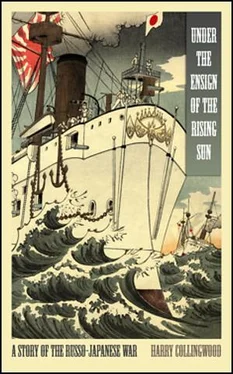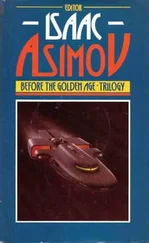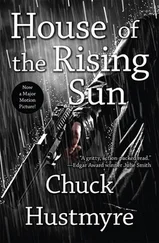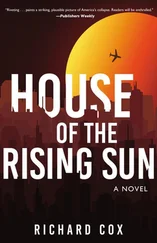Harry Collingwood - Under the Ensign of the Rising Sun
Здесь есть возможность читать онлайн «Harry Collingwood - Under the Ensign of the Rising Sun» весь текст электронной книги совершенно бесплатно (целиком полную версию без сокращений). В некоторых случаях можно слушать аудио, скачать через торрент в формате fb2 и присутствует краткое содержание. Год выпуска: 1916, Жанр: nonf_military, на английском языке. Описание произведения, (предисловие) а так же отзывы посетителей доступны на портале библиотеки ЛибКат.
- Название:Under the Ensign of the Rising Sun
- Автор:
- Жанр:
- Год:1916
- ISBN:нет данных
- Рейтинг книги:4 / 5. Голосов: 1
-
Избранное:Добавить в избранное
- Отзывы:
-
Ваша оценка:
- 80
- 1
- 2
- 3
- 4
- 5
Under the Ensign of the Rising Sun: краткое содержание, описание и аннотация
Предлагаем к чтению аннотацию, описание, краткое содержание или предисловие (зависит от того, что написал сам автор книги «Under the Ensign of the Rising Sun»). Если вы не нашли необходимую информацию о книге — напишите в комментариях, мы постараемся отыскать её.
Under the Ensign of the Rising Sun — читать онлайн бесплатно полную книгу (весь текст) целиком
Ниже представлен текст книги, разбитый по страницам. Система сохранения места последней прочитанной страницы, позволяет с удобством читать онлайн бесплатно книгу «Under the Ensign of the Rising Sun», без необходимости каждый раз заново искать на чём Вы остановились. Поставьте закладку, и сможете в любой момент перейти на страницу, на которой закончили чтение.
Интервал:
Закладка:
The object of the manoeuvre was of course to impress the Russian Admiral with the conviction that we were as little anxious to put our fortunes to the touch as he was; and apparently the ruse was successful, for almost immediately the Russians shifted helm, heading about south-east and standing across our wake, with all their funnels belching great volumes of smoke, showing that a tremendous effort was going to be made to give us the slip.
For what seemed to us all an interminable half-hour, the astute little Japanese “Nelson” permitted them to lay the flattering unction to their souls that they were going to succeed, for during that half-hour the Japanese fleet plugged steadily away to the south-west, every moment increasing the distance between themselves and the enemy. Then, at last, judging from the respective positions of the two fleets that our superior speed must certainly frustrate any further attempt at escape on the part of the enemy, up went the longed-for signal for us to swerve round and give chase.
This manoeuvre of ours was the signal for another shift of helm on the part of the Russians. They had been heading about south-east, but now, seeing us coming straight for them, they swerved away until they were heading almost due east, as though even now anxious to defer the evil moment as long as possible. But they must speedily have recognised the impossibility of escape, for now, with carefully-cleaned furnace fires and a full head of steam, our ships were racing along through the fast-rising sea at a speed which would enable us to rapidly overhaul the chase, notwithstanding that they were plunging until they were buried to the hawse-pipes, and their fore-decks were smothered with spray.
The two fleets were now running upon converging lines, the enemy, about a point before our port beam, steering east, while we were steering east-north-east, and visibly gaining as the minutes slipped by. At last it looked as though the fight could no longer be delayed, and a thrill of excitement passed through me as I now began to fully realise that I was about to take part in a great naval battle, fought under modern conditions in ships protected by ponderous plates of steel armour and furnished with all the most modern engines of destruction. What would such a battle look like, and how would it end? Meanwhile the day was passing, and although the two fleets had been within sight of each other for more than two hours, nothing had thus far been done.
Both fleets were now steaming in single line ahead, the battleships leading, and the cruisers following closely, the Russian fleet being slightly ahead and steaming surprisingly well, considering the condition of their ships, though we were rapidly overhauling them.
Five bells (half-past two o’clock) in the afternoon watch pealed out, and at the same moment the Asama and Yakumo received orders to haul out from the fleet and heave-to, holding ourselves ready to deal with any enemy ships which might attempt to break back toward Port Arthur. So we were not to be allowed to take part in the fight, after all! It was positively heart-breaking, and for a moment I felt inclined to imitate Nelson at Copenhagen and turn a blind eye to the signal, but the sight of the Asama promptly sheering out from the line brought me to my senses. I knew that poor Yamada would be just as bitterly disappointed as myself; yet there he was, obeying the order with the same promptitude that he would have displayed had he been ordered to attack the enemy single-handed. I nodded—rather savagely, I am afraid—at Arisaka, the Commander, who was regarding me with eyebrows raised questioningly.
“All right,” I growled. “Hard a-port, sir, and sheer out of the line.”
We swept right round in a wide semi-circle, finally stopping our engines when we arrived at a spot about midway between the rears of the two fleets. Our engines had just stopped, and I was on the point of opening a semaphore conversation with the Asama , hove-to about half a mile distant, with the purpose of making some sort of arrangement for coping with certain possible eventualities, when a vivid flash and a great cloud of smoke burst from the Mikasa , and was immediately followed by similar outbursts from the rest of our battleships, which were opening fire upon the Russian rear as the ships came within range. To give them their due, the Russians were by no means slow to reply, and it was presently evident from the number of shells falling round her, that they were concentrating their fire upon the Mikasa . The first hit was scored by one of our ships—the Shikishima , we afterwards learned—which landed a 12-inch shell under the Askold’s forward bridge. We saw the flash and smoke of the exploding shell, but could not, of course, tell what damage was done. The next second another shell hit the same craft about her waterline, and within a minute huge volumes of smoke were seen pouring from her, seeming to indicate that she was on fire. But with ourselves at a standstill and both fleets steaming away from us at high speed, they soon passed beyond our range of vision, and all that we knew about the fight was that there was a terrific cannonading going on, while the eastern horizon bore a dense veil of smoke which came driving rapidly down upon us before the rising gale. The cannonading continued with tremendous energy for about three-quarters of an hour, and then began to slacken, until by seven bells—half-past three in the afternoon—it had ceased altogether.
What had happened? Was the fight over? It might be so, although I could scarcely believe that the Russians had been utterly beaten in the short space of an hour; for although their ships were in anything but first-class condition, the men were brave, and were scarcely likely to yield so long as the merest ghost of a chance of success remained to them. We were not doomed to remain very long in suspense, however, for just as eight bells was striking a wireless message arrived from the Admiral, ordering the Asama and ourselves to rejoin forthwith, and giving us our course, east-south-east.
I believe our engines were the first to move, but the Asama was now nearly a mile to the eastward of us, we standing higher out of the water than she, and therefore drifting to leeward faster, consequently she really had the best of the start. But I wasn’t going to let her get into action before me, if I could help it, and I called down the voice-tube to Carmichael, our Engineer Commander, explaining the state of affairs, and begging him to do his best. Unfortunately for us, however, the Asama’s “chief” was Scotch, too; it therefore at once became a race between the two ships, all the keener because of the friendly rivalry between the two Scotchmen. It was generally conceded that Asama had the advantage of Yakumo by about half a knot; but when at length, shortly before four bells in the first dog watch, we rejoined the line, the two craft were running neck and neck.
The battle recommenced about a quarter of an hour before we were able to resume our former position in the fighting line, the Poltava opening fire with her 12-inch guns upon the Mikasa , against which ship, it appeared, the Russians had concentrated their efforts during the earlier phase of the fight. The Poltava was the sternmost ship in the Russian battle-line; and as though her shots had been a signal, the fire instantly ran right along the Russian line from rear to van. The din was frightful, for our ships at once returned the Russian fire, and in a moment, as it seemed, the sea all round about the Mikasa on our side, and the Tsarevich, Peresviet , and Retvisan on the side of the Russians, was lashed into innumerable great fountains of leaping spray which shone magnificently, like great showers of vari-coloured jewels, in the orange light of the declining sun. And presently, as the gunners got the range, there were added to the deafening explosions of the guns the sounds of the projectiles smiting like Titan hammers upon the armoured sides and other protected parts of the ships, and the crash of bursting shells. Great clouds of powder smoke whirled about the ships, hiding them for a second or two and then driving away to leeward upon the wings of the increasing gale. Splinters of wood and iron, and fragments of burst shells swept over the ships like hail, and prostrate forms here and there about the decks, weltering in their blood, proclaimed the growing deadly accuracy of the fire on either side. The pandemonium of sound was such that the human voice could no longer make itself heard, and the officers on the bridges were obliged to give their orders in dumb show. Even the shrieks of the wounded went unheard in that hellish babel of sound. As the distance between the contending ships decreased one began to realise the terrific character of the forces employed by man for the destruction of his fellow-man, for now it could be seen that the Tsarevich , ponderous as was her bulk, literally and visibly heeled and swayed under the tremendous impact of the enemy’s projectiles. But we were by no means getting things all our own way, for when the fight had been raging for about half an hour, the Mikasa was struck upon her fore barbette by a 12-inch shell which shook the ship from stem to stern as it exploded, and put the barbette, with its two 12-inch guns, out of action for a time through the jamming of its turning machinery. The damage, however, was speedily repaired, and meanwhile the fight went on with ever-increasing fierceness and determination.
Читать дальшеИнтервал:
Закладка:
Похожие книги на «Under the Ensign of the Rising Sun»
Представляем Вашему вниманию похожие книги на «Under the Ensign of the Rising Sun» списком для выбора. Мы отобрали схожую по названию и смыслу литературу в надежде предоставить читателям больше вариантов отыскать новые, интересные, ещё непрочитанные произведения.
Обсуждение, отзывы о книге «Under the Ensign of the Rising Sun» и просто собственные мнения читателей. Оставьте ваши комментарии, напишите, что Вы думаете о произведении, его смысле или главных героях. Укажите что конкретно понравилось, а что нет, и почему Вы так считаете.












